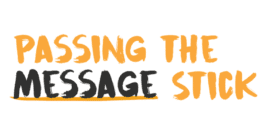Avoiding a Democratic Car Crash

8 June 2017 at 8:45 am
This week has highlighted how important it is for us to be brave in our advocacy and stand up for democracy, writes David Crosbie, CEO of the Community Council for Australia (CCA).
Over 50 leading charities in the UK have this week published a joint letter seeking major changes to the laws governing the ability of charities to campaign during elections.
The letter has been widely reported in the UK press and gained considerable support. The key concern is the administrative and regulatory burden imposed by the Lobbying Act, which the charities argue has significantly reduced their capacity to campaign in the lead up to the UK general election.
The Lobbying Act imposes new requirements on charities including full documentation and costing of campaign activities 12 months before the date of the election. This requirement is retrospective meaning that all charities involved in campaigning during the current election have to provide detailed financial campaign records back to June 2016. This is despite the election only being called in April this year.
The open letter from more than 50 charities states that:
“The Lobbying Act has had a significant chilling effect on legitimate charity sector campaigning in the pre-election period. A number of charities – including signatories to this letter – have altered or reduced campaigning activities before the election as a result of the act.
Voices are being lost at this crucial time, and our democracy is the poorer for it. Those charities that continue to campaign to further their charitable objects are subject to an enormous and unreasonable administrative and financial burden.”
Most major parties have now agreed to scrap or significantly reform the UK Lobbying Act after this election. Few believe the new law has been effective. Few believe it has enhanced democracy. It seems corporate lobbyists generally have the capacity to comply with the costly financial reporting systems involved in documenting and costing campaign activities. Smaller charities struggle to meet the requirements of the act.
Some charities, like Greenpeace, have found it so restrictive they have refused to comply, and already been fined. A Greenpeace spokesperson described the Lobbying Act as a “democratic car crash”.
Wednesday morning this week on ABC radio, the Special Minister of State Scott Ryan informed Fran Kelly that foreign donations to political parties would be restricted under new legislation he was drafting, but that was not all. The minister also argued that foreign donations to third parties involved in campaigns and advocacy should be restricted as they could influence the outcome of an election. He then discussed the need to restrict overseas funding for groups like GetUp and other third party political campaigners.
At the Australian Progress conference in Melbourne this week (Progress2017) a whole session was devoted to the issue of defending democracy. It was interesting listening to participants in the session talking about all the ways in which pressure had been exerted on them and their organisations not to publicly advocate for policies that would benefit their communities.
In the lead up to this event, a group of organisations lead by the Human Rights Law Centre (HRLC) worked together to produce a report; Defending Democracy: Safeguarding Independent Community Voices. CCA, ProBono Australia, ACOSS, choice, Justice Connect, and the Reichstein Foundation are among the organisations that collaborated to prepare the report (which is available for download here).
Professor Gillian Triggs, president of the Australian Human Rights Commission launched the report on the last day of Progress2017.
The fundamental principle that informs the report is directly linked to the concerns being expressed by charities involved the UK election campaign. Charities and not-for-profit organisations play a critical role in our democracy, especially during election times. This is about more than providing a voice for the voiceless, it is about engagement in the process of choosing representatives that reflect the concerns of many different communities. It is the heart of democracy, the meaning of democratic process.
The five main areas of concern addressed in the HRLC report include:
- preventing advocacy through restrictive funding agreements
- restricting or reducing the ability of charities to offer tax deductions to donors (DGR status)
- restricting funding of charities from outside of Australia (including from head offices based overseas)
- restricting NFP involvement in elections and campaigning
- cutting funding and limiting government engagement with peak bodies.
The government is now raising questions about the legitimacy of groups like GetUp campaigning during election periods. At the same time, there is little, if any, discussion about the advocacy and political campaigning of groups like the Minerals Council of Australia, major multinational companies, or the over-protected cabals of special interests, like the owners of pharmacies in Australia.
Campaigning for your vested interests seems to be much more politically acceptable to government than campaigning for the interests of the marginalised, the disadvantaged, the arts or the environment.
The HRLC report argues: “We must work together to protect our independent, vibrant, robust and strong tradition of free speech and community activity.”
This week has again highlighted how important it is for us to be brave in our advocacy, to validate the experiences of the communities we serve, to raise our voices, to not be silenced as we work towards the Australia we want to live in. Democracy depends on it.
About the author: David Crosbie is CEO of the Community Council for Australia. He has spent more than 20 years as CEO of significant charities including five years in his current role, four years as CEO of the Mental Health Council of Australia, seven years as CEO of the Alcohol and other Drugs Council of Australia, and seven years as CEO of Odyssey House Victoria.
David Crosbie writes exclusively for Pro Bono News on a fortnightly basis, covering issues of importance to the broader not-for-profit sector.







